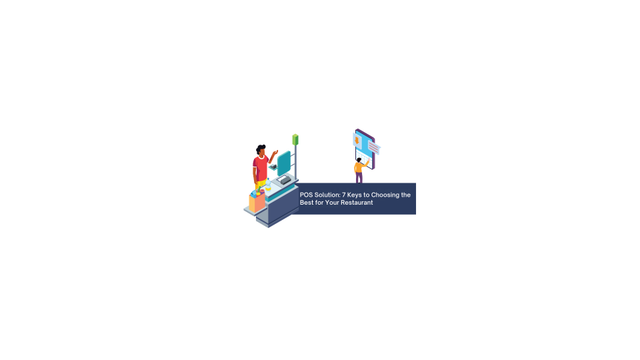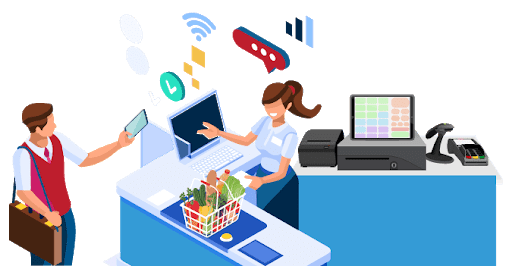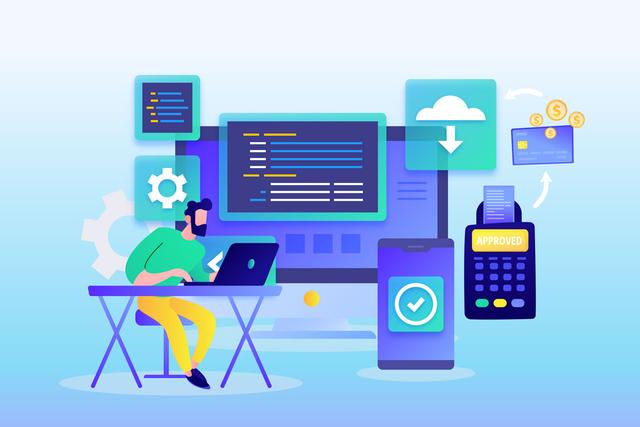Top 8 Best Restaurant POS Systems (Tried & Tested in India)
To run a restaurant efficiently, one must install an effective Restaurant POS Systems to manage it well. Though POS stands for Point of Sale, POS systems help not just with billing, but also with taking orders with the waiter app and managing orders with the kitchen display system. And integrate online orders through various food delivery apps and efficiently keep track of the inventory.
1. Get Grahak
Get Grahak: Revolutionizing POS & Business Automation. Simplify billing, orders, inventory, and customer relations. Automate loyalty programs, lead generation, greetings, reports, and more. Streamline operations with ease.

Pros
- Generate Professional Bills
- Efficient and easy-to-use platform.
- Manage Inventory, Avoid Losses
- Real-time reports
- Increase Customer Loyalty & Marketing
- Excellent support and flexibility.
- Supports multiple integrations.
- Offers features you need for your restaurant
Cons
- “Nothing as of now, they are doing a wonderful job, however, they are open for feedback from users, and take proactive actions to deliver the same if it benefits the customer”.
2. PetPooja
PetPooja POS is a cloud-based Restaurant POS Systems. This restaurant management software offers a complete solution for all the restaurant requirements, including cash management, reservation & booking, time & attendance management, tracking & secure payments, and waiting time tracking.
Pros
- Efficient and easy-to-use platform.
- Excellent support and flexibility.
- Availability of loyalty programs at additional cost.
- Offers features you need for your restaurant.
- Let you start immediately with the friendly design and interface.
Cons
- Complex inventory management system.
- Limited integrations with third-party platforms and accounting software.
- Time-consuming menu management system.
3. POSist
POSist is a cloud-based POS software for restaurants. With its clean design, quick setup, and ease of use, this is the perfect solution for any restaurant looking to manage its business daily.
Pros
- Simple to use.
- Friendly interface and flexible design.
- Simple and effective billing solutions.
- Supports multiple integrations.
Cons
- Late response for customer service tickets.
- Sometimes works slowly.
4. EZO Books
EZO is an Invoice maker that helps to send Invoices, Billing, Estimates, and Proforma Invoices by WhatsApp. Useful accounting software for small shopkeepers, retailers, and suppliers.
Pros
- Great marketing tactics
- Cheap hardware
- Suitable for Small Restaurants
Cons
- Bad User UI Experience
- Full dependency on Mobile
- No customer support or after-sales service
- Device sync issue
- Lacks addon integration with other apps
- The Company’s main focus is more on creating new sales rather than providing a good experience for existing customer
5. Vypar
Vyapar billing apps for restaurants in India. They have a very user-friendly interface that makes it extremely easy for users to navigate through the platform.
Pros
- Vyapar is easy to use, even for those without accounting experience. Its user-friendly interface makes creating invoices, tracking expenses, and managing inventory simple.
- It has a mobile restaurant billing app that allows hotel staff to access their accounts from anywhere. This can be useful for checking invoices, tracking payments, and managing inventory.
Cons
- Its reporting capabilities are somewhat limited compared to other billing and accounting software. This may not be a problem for small hotels, but it could be a drawback for larger ones needing more detailed reports.
- The software’s incompatibility with iOS devices is a major drawback for many customers who exclusively use Apple products.
6. Limetray
Limetray is a cloud-based POS system for restaurants and cafes. It’s also free! The platform offers a mobile app for iOS and Android, allowing you to accept payments anywhere you go.
Pros
- User-friendly interface.
- Excellent customer support to resolve issues.
- Smooth and fast onboarding process.
- Supports SMS automation.
- Offers integration with multiple third-party software.
Cons
- Little customization features
- You may find difficulties with the speed of the software.
7. myBillBook
myBillBook is one of the most popular billing software amongst restaurants that helps create professional invoices within a short time.
Pros
- myBillBook has a simple and straightforward user interface, making it easy for restaurant staff to learn and use its various features, even those with minimal accounting experience.
- It supports multiple languages, making it suitable for restaurants serving a diverse clientele.
Cons
- While it provides basic reporting features, some users desire more in-depth and customizable reporting options.
- It currently does not have a built-in feature for generating e-way bills, which some Indian restaurants may require for certain transactions
8. Foaps
As an order management system, Foaps provides a centralized dashboard to view, manage, and track all orders from Zomato, Swiggy, Dunzo, or other aggregators. When an order is accepted, a ticket is raised in the kitchen simultaneously, leaving no gap or delay in order preparation.
Pros
- Cost-effective
- Seamless integration with food delivery platforms and a single dashboard for management-
- Change menus, and prices, update food changes or a delivery surge with one tap for all platforms
- No more manual errors and lags
- Provides insights on customer orders, duration of a higher surge, usual delivery times, and so on.
Cons
- Fewer features since it’s new in the market
- Not the right choice if you’re looking for a POS software solution
- Does not allow integration with third-party tools for other use cases or existing billing system
Conclusion
Today, restaurant billing software has gone much beyond what the name promotes. They have evolved as relevant POS systems, wherein they cater to each and every aspect related to running a restaurant. This software is not only limited to restaurants but to any kind of food outlet. There are more options available if one sets out to look for general billing software.
Most of these software offers a free demo before one makes a purchase of a paid plan. By making use of this facility, the clients can ensure the cost efficiency and smooth functioning of the business.
For Latest News & Update
Want Receive the Best SAAS Insights? Subscribe Now!
We can help you to create your dream website for better business revenue.
Build your online store with us
You just pay 9/- per order placed
Supercharge your online business with an arsenal of tools that fuel exponential growth.


